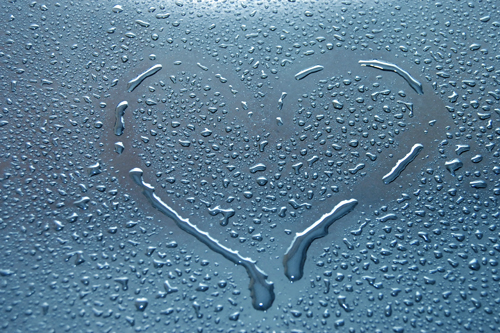

This Is Water: Some Thoughts, Delivered on a Significant Occasion, About Living a Compassionate Life is a witty and thoughtful meditation on living an ethical life in a challenging world. The late David Foster Wallace, an immensely talented novelist and essayist, captured the public imagination in this 2005 commencement address delivered at Kenyon College.
The question of what we worship is at the heart of This Is Water. Wallace was not referring to Christianity or Buddhism, Judaism or atheism. Those are conscious devotions. What we care about that governs how we live our lives, as Wallace wisely notes, is also unconscious. In other words, we are often unaware of some of the crucial things that drive us. For example, the vast majority of us—save those who neglect themselves by acting as if they have no importance and value—take for granted that we are the center of the universe. Our self-absorption is a default setting, a perspective we habitually operate from without realizing it. And the real world supports the worship of self and the fear and craving and isolation that it generates. The cult of self creates an endless treadmill, a life fixated on attempting to justify our existence and meet our needs as central and special. This makes us feel as if we are never good enough, always lacking something vital.
The kind of freedom our culture also unconsciously worships—being what Wallace calls “lords of our tiny skull-sized kingdoms”—has much to recommend it. It is, for example, the engine of self-protection and survival, individuation and evolution, as when we value ourselves enough to take care of ourselves and set boundaries so that we are less endangered. Creativity and competence grow from the soil of such constructive self-centeredness.
 But the most “precious” kind of freedom, Wallace claims, has nothing to do with status, reputation, or financial resources, and is not much talked about “in the great outside world of winning and achieving and displaying.” The Rewire Me moment in reading This Is Water is that the really important kind of freedom—what we might think of as genuine freedom—is very different from and opposed to our natural default setting of absorption in me. Instead it involves “attention, and awareness, and discipline, and effort, and being able truly to care about other people and to sacrifice for them, over and over, in myriad petty little unsexy ways, every day.” This freedom is indispensable in opening our hearts to other people and the world. It allows us to approach the inevitable moments of conflict, boredom, and strife that characterize daily existence with greater awareness and compassion, instead of being ground down by what Shakespeare in Hamlet called “the thousand natural shocks / That flesh is heir to.”
But the most “precious” kind of freedom, Wallace claims, has nothing to do with status, reputation, or financial resources, and is not much talked about “in the great outside world of winning and achieving and displaying.” The Rewire Me moment in reading This Is Water is that the really important kind of freedom—what we might think of as genuine freedom—is very different from and opposed to our natural default setting of absorption in me. Instead it involves “attention, and awareness, and discipline, and effort, and being able truly to care about other people and to sacrifice for them, over and over, in myriad petty little unsexy ways, every day.” This freedom is indispensable in opening our hearts to other people and the world. It allows us to approach the inevitable moments of conflict, boredom, and strife that characterize daily existence with greater awareness and compassion, instead of being ground down by what Shakespeare in Hamlet called “the thousand natural shocks / That flesh is heir to.”
Wallace is unfortunately no longer with us, which is a monumental loss to the world. But if you read this wonderful, slim book, your life will be enriched, enlivened, and transformed.




1 Comment
Rose Caiola
Living with greater awareness and compassion is essential to our overall happiness. It is only when we can get outside of ourselves and learn how to truly care about others that we can feel fulfilled.